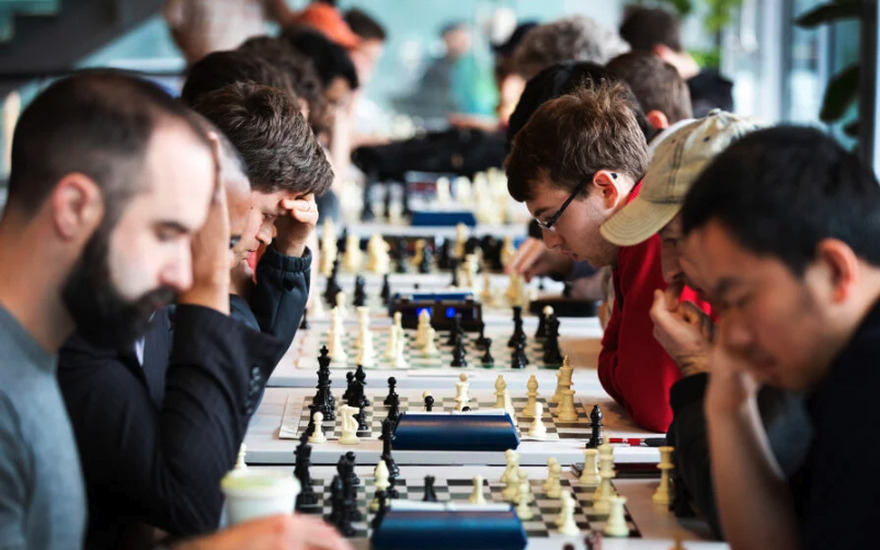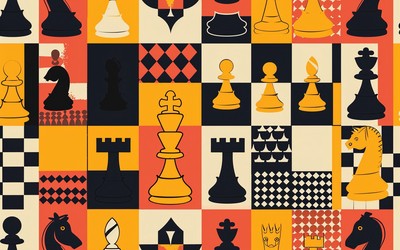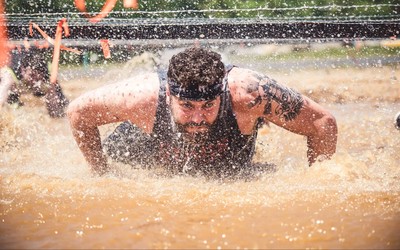
Nate Solon
OMG, I registered for an OTB tournament
Here's everything I'm doing to prepareIt’s been over a year since I played in an over-the-board tournament. My previous tournament was the World Amateur Team in February 2022. Between COVID and having a kid (my son just turned one) it’s been a tricky few years for OTB chess.
But I decided the time has come to get back in the saddle, so I registered for the ALTO tournament in Charlotte!
Why play a tournament?
I was really inspired to get back into OTB chess by my co-author on Evaluate Like a Grandmaster, GM Eugene Perelshteyn, who recently returned to OTB after a long break and managed to win two tournaments back-to-back. (You can read or listen to my interview with Eugene about his preparation process here.)
What inspired me about Eugene’s experience wasn’t so much that he managed to win as the tournaments, but that they made him a better coach:
“I look back on it and I feel like there's so many instructive moments in every single game, even against lower rated players that I may have not picked up that way, that to me, it's almost like for weeks, if not months, I start to digest that... it's one thing to coach and say, oh, you're supposed to play this move. It's another thing to show the game and say, well, look at that. Look at my thought process. Look at my thought process breaking down. Look at the decision making. Like there's a lot of things that I get, they relate to and I relate to them when you're more active. So I feel like it's almost like a necessary step to really understand your students to play yourself.”
When you haven’t played OTB in awhile, you forget what makes it so hard. You just study, show up to the tournament, do your best, analyze your games, and move on to the next tournament, right? But when you actually play it’s never that simple. There’s pressure, nerves, things never go as planned... So in order to be a good coach and writer, I felt it was important to get back into the mix and challenge myself with an OTB tournament.
Why I chose this tournament
There was still the matter of choosing which tournament to play in. Eugene suggested that I start with a shorter 5-6 round tournament, rather than jump straight into a huge 9-round tournament, which makes sense to me. I’ve seen some people choose something like the 9-round World Open as their first tournament, but that’s really jumping into the deep end. In my experience, any chess tournament – even a relatively short one – is a very intense experience, more intense than almost anything I do in “civilian” life. So I’m more than happy to start out with a relatively chill tournament, which is still very intense by any normal standard.
When I asked for people’s favorite tournaments on Twitter, many singled out the ALTO (At Least Twenty One) tournaments at the Charlotte Chess Center. Unlike some chess players, I don’t have a problem with losing to kids. I fully recognize the right of kids to participate in chess tournaments and kick my ass. Don’t get me wrong, I don’t particularly like losing in general, but if I’m going to lose to someone, it might as well be a kid. At least they’ll be happy!
But a chess tournament is not only competitive, it’s also a social event. And if I’m going to take a weekend to travel somewhere, I don’t really want to spend it hanging out with little kids. (I already spend lots of time hanging out with my little kid, thank you very much!) Traditionally chess tournaments have prioritized the competitive aspect, while other aspects – ambience, social atmosphere, hygiene – have fallen by the wayside. But with the growth of chess post-The Queen’s Gambit, there are more adults who want to have a pleasant social experience at a tournament, not just compete to win chess games at all costs. In this respect the Charlotte Chess Center and director Peter Giannatos are really ahead of the game with ideas like the ALTO tournament, so it ended up being an easy choice.
Of course, there is some cost involved in getting myself to Charlotte. I could play a tournament closer to home, but if I play here in Nebraska, I’ll probably be the highest rated player, likely by a pretty wide margin. One thing I realized when I came back to chess as an adult was that I did not like the dynamic of being the highest rated player and always feeling pressure to win. This is a situation you often find yourself in if you’re a talented junior, and with the benefit of hindsight, I realized I never really enjoyed it. There’s a target on your head, if you win it’s expected, but if you lose it’s embarrassing. I’m not saying I would never play a tournament where I’m the highest rated player, but given the choice, I’d rather play in an event with at least a few players at or above my rating level. The previous edition of the ALTO tournament featured several grandmasters, so I don’t think I’m at any risk of being the strongest player there.
Goals
I really like my friend GM Noel Studer’s advice to ask yourself, “What makes that tournament worth it even if I play badly?” While I plan to prepare and do my best, given that this will be my first tournament in over a year, I don’t have much of a right to expect a superlative result. Fortunately, other goals are easy to come up with for this tournament.
- As I already discussed above, one of my main reasons for entering the tournament in the first place is to get first-hand experience that will make me a better coach and writer.
- I also want to meet and connect with old chess friends I haven’t seen in awhile, and new friends I’ve met online. Another reason for choosing the ALTO tournament is that I expect to see many of my chess Twitter friends there.
So I’ve got some great things to look forward to even if the games don’t go my way. But that doesn’t mean I’m not going to try to win!
Preparation Plan
The tournament starts September 2 and I’m writing this on June 30, so I have almost exactly two months to prepare. While I certainly spend lots of time looking at chess on a daily basis, it’s mostly for coaching, writing, courses, etc. and not explicitly trying to improve my own chess. So I definitely have some work to do to get ready. These are what I consider to be the main areas I need to work on:
- Openings: choosing and refining a repertoire for this tournament. In our interview, Eugene suggested committing to a narrow repertoire for any given tournament, and I think that makes sense. As White I’ll probably use the 1. Nf3 repertoire I’ve been developing for my Chessable course (which is coming out soon!!). There won’t be much of an element of surprise, but I’ve already invested a lot of time into it, I like the lines, and – let me just be honest here – if I get a signature win it will help me sell the course. As Black, I don’t really have a fixed repertoire right now. I’m going to choose some lines, create files, and start practicing them.
- Calculation: getting used to seeing the board and calculating. After playing exclusively online for so long, I want to get used to seeing a 3d physical board, which means my chess set – which so far has functioned mostly as a Zoom background – is getting dusted off. I’m planning to do some exercises from Universal Chess Training by Wojciech Moranda. There are many books with good exercises and ultimately I don’t think it matters that much which you choose, but this is one I’ve been interested in checking out for awhile. I’m also planning to set up some rapid training, both in person here in Nebraska to get used to seeing the board, and online against some IM/GM friends to get some experience against really tough opposition.
These are just things you always need to get in shape when you haven’t played in awhile. I’m also going to do a bit of self-scouting using the database analysis project I’ve been working on. So far I’ve done a database analysis of d1lla (1200 Chess.com rapid), which you can check out here, and Kamryn (2000 Chess.com rapid), who’s going to release a video about it next week. Next I’m planning to look at two more really intriguing players, poker champion Ike Haxton, and superstar streamer Alexandra Botez. I figured that as long as I’m spending all this time developing these tools, it might be interesting to turn the magnifying glass on myself and see if I can uncover any weaknesses that I can address before the tournament.
To pull it all together, my training plan (which I’m sure I will change many times!) looks like this:
Monday - Openings
Tuesday - Titled Tuesday
Wednesday - Analyze Titled Tuesday games
Thursday - Calculation exercises
Friday - Blitz
Saturday - Rapid
Sunday - Rest day
It’s not the most intense study plan imaginable, but it’s also really important for me to have fun and continue to enjoy chess. Ultimately my biggest goal isn’t to win the tournament, but to get some valuable experience and hang out with other chess players.
Speaking of which... Perhaps you’d like to join me in Charlotte?
If you liked this check out my newsletter where I write weekly posts about chess, learning, and data: https://zwischenzug.substack.com/




